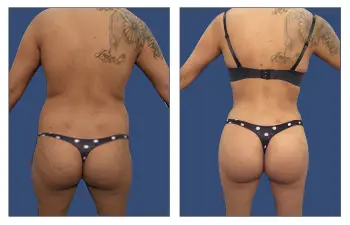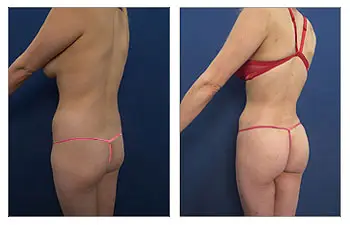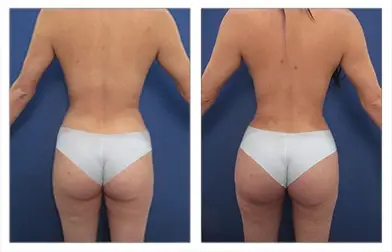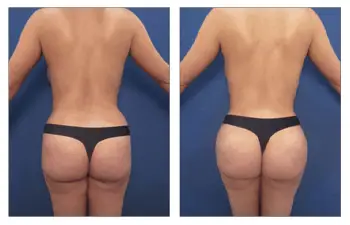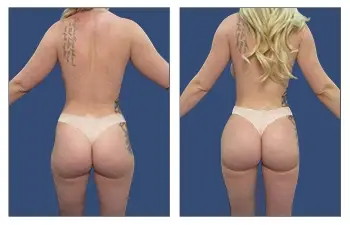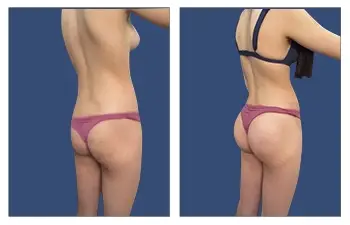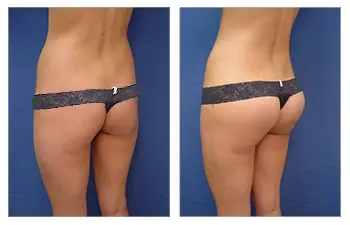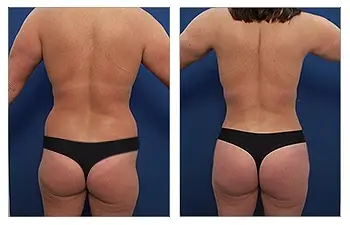Have you ever wondered what is the World Association of Gluteal Surgeons? Well, I did, too! Until a serendipitous encounter took me down this fascinating rabbit hole. Picture it: a global network of expert surgeons. Their mission? To elevate safety and education in gluteal surgery.
The stakes are high; we’re talking about procedures like Brazilian Butt Lifts (BBLs), which despite their popularity, carry real risks.
Plastic and cosmetic surgeons who perform gluteal fat transfers at their surgery center or an ambulatory surgery center have joined WAGS to improve the overall BBL safety track record.
The American Society of Plastic Surgeons, the Aesthetic Surgery Association, and even the American Board of Cosmetic Surgery have all acknowledged the WAGS group’s efforts to minimize the risks of fat embolism.
World Association of Gluteal Surgeons
WAGS stands for the World Association of Gluteal Surgeons, an organization of physicians from around the world who are dedicated to advancing the science of buttock surgery. Surgeons have formal training in a wide range of surgical specialties.
The World Association of Gluteal Surgeon’s mission is to promote the safety of buttock surgery. Specifically, the most recent increase in detrimental complications relating to the incidence of fat emboli has shifted the organization’s focus to reassessing and determining protocols to improve Brazilian buttock lift (BBL) safety.
In 2021, the organization completed a survey of 95,000 BBL cases worldwide. They found that 54% of cases were performed by plastic surgeons and 48% by cosmetic surgeons.
The number one complication following BBLs was seroma formation at 4.4% and an incidence of death from fat emboli at 1 in every 26,000 BBLs. This incidence of BBL fat emboli deaths is promising as it is far lower than the previously identified incidence of 1 in 3000 published in 2017.
What is the WAGS focused on?
The most recent focus of the World Association of Gluteal Surgeons has been understanding the most recent uptick in deaths. More specifically, there have been seven deaths in Miami in only six months in 2022. The World Association of Gluteal Surgeons members joined forces at the end of May to reconsider the causes of locally increased numbers of detrimental complications in Miami.
Factors considered were the surgeon’s inexperience with lack of buttock anatomy and procedural techniques, surgeon fatigue, and the possibility that fat grafting was not performed by the surgeon but by surgical assistance. In addition, discussions were made regarding developing surgical tools using advances in science that could assist surgeons in avoiding the deposition of fat in or under the muscle.
How do you avoid BBL complications?
Avoiding fat injection into or under the muscle is the mainstay of Brazilian buttock lift surgery since this single factor is the underlying common thread involved in BBL-related fat emboli deaths. Several advancements were discussed at the 2022 World Association of Gluteal Surgeons meeting to improve control of fat grafting cannulas:
- Fat grafting cannula with a light source at the tip that can be visualized to help surgeons ensure that they are not below the muscle
- Fat grafting cannula with the capacity to measure differences in impedance between fat and muscle tissues, thus providing a feedback mechanism to localizing the wand position
- Ultrasound assistance and development of radiolucent fat grafting cannulas that can be visualized with portable ultrasound monitoring
The urgency of establishing safety in BBL surgery is of the highest priority for World Association of Gluteal Surgeon members at this time. The Florida Medical Board is considering banning all BBL procedures if improved safety profiles are not immediately established. A task force was created to address this very important concern of the World Association of Gluteal Surgeons organization, which promotes safe BBL surgeries.
This isn’t some esoteric club discussing abstract theories; lives are on the line here. With an alarming increase in BBL-related deaths, particularly in Miami, there’s no time for complacency. These professionals address these challenges head-on with improved surgical tools and methods.
Interested? Hang tight. We’re about to dig into the nitty-gritty of what WAGS truly offers.
Understanding the World Association of Gluteal Surgeons
The World Association of Gluteal Surgeons (WAGS) is a group that’s as unique and specific as it sounds. They’re a dedicated bunch, pushing forward the science behind buttock surgery.
This isn’t just about aesthetics – we’re talking serious medical knowledge here. Members within WAGS come from diverse surgical specialties, bringing together an impressive array of skills to improve gluteal surgery techniques and outcomes.
The Role and Mission of WAGS
You must dive into their mission to truly understand what drives this association. At its core, WAGS promotes safety in gluteal surgery procedures while enhancing education around these complex operations.
Safety is paramount when undergoing any plastic or cosmetic procedure, particularly those involving gluteal surgeries where complications can have severe repercussions. But for something like gluteal surgeries, where complications can have serious consequences? It becomes even more critical.
In essence, WAGS works tirelessly to ensure surgeons are equipped with the most current practices and technologies available to mitigate risks associated with such procedures.
Facts You Should Know About Gluteal Surgery
| Type Of Procedure: | Brazilian Butt Lifts (BBL) And Others |
|---|---|
| Number Of Procedures Worldwide: | Around 95K BBL Cases Documented So Far. |
| Seroma Formation Post-Surgery: | An Unwanted Guest In Approximately 4% Of Cases… |
| Who Performs The Surgeries: | A Blend Of Plastic Surgeons (54%) And Cosmetic Surgeons (48%). |
Now, about those tricky bits. You’d probably be shocked to find out that nearly 54% of around 95,000 BBL cases worldwide were handled by plastic surgeons. Cosmetic surgeons took care of roughly 48%. This highlights how crucial.
The Role of the World Association of Gluteal Surgeons (WAGS)
In response to the growing concerns surrounding Brazilian Butt Lift procedures, the World Association of Gluteal Surgeons (WAGS) was established. WAGS is an international organization dedicated to promoting safety and advancing the field of gluteal surgery.
WAGS aims to address the safety concerns associated with BBLs by providing surgeons with education, training, and guidelines. They underscore the significance of accurate surgical techniques, patient selection, and aftercare to reduce complications and enhance outcomes.
Through research, collaboration, and advocacy, WAGS is working towards standardizing and improving the safety of gluteal augmentation procedures. They stress the necessity of having an experienced and qualified surgeon for BBLs and educating patients and doctors on the potential risks and benefits.
By promoting evidence-based practices and fostering a global network of gluteal surgeons, WAGS aims to enhance patient safety and ensure that individuals seeking gluteal augmentation can make informed decisions about their procedures.
As the popularity of Brazilian Butt Lift procedures continues to rise, it is crucial to prioritize safety and choose a well-trained and experienced surgeon. Organizations like WAGS play a vital role in advancing the field and improving the safety of gluteal augmentation procedures.
. It is crucial for individuals considering a BBL to thoroughly research and choose a qualified, experienced surgeon who specializes in this procedure. Patients should prioritize safety over cost or convenience.
For surgeons, ongoing education and training are essential to stay updated on the latest techniques and best practices. Collaboration between medical professionals and the sharing of information can assist in improving patient results while decreasing potential risks.
Regulatory entities and specialist organizations, such as the World Association of Gluteal Surgeons (WAGS), are indispensable in ensuring safety and establishing benchmarks for the field. WAGS focuses specifically on gluteal surgery, including BBLs, and aims to enhance patient safety through education, research, and advocacy.
By addressing the factors contributing to the increased deaths related to BBLs in Miami, we can work towards a safer future for patients seeking cosmetic procedures. It is crucial to prioritize patient safety, ensure proper training and expertise, and hold practitioners accountable for their actions.
Links to Remove: – “World Association of Gluteal Surgeons (WAGS)” (keep the mention of WAGS, remove the link)
Addressing the Safety Concerns in Gluteal Surgery
To ensure the highest level of safety, WAGS has taken great care to ensure their surgical protocols are as secure and effective as possible.
A key focus for WAGS is reducing the incidence of death from fat emboli after Brazilian Butt Lift procedures (BBLs). In 2017, the fat emboli fatalities from BBLs were shockingly high – one in every 3K cases.
Imagine being on a plane with that many people and knowing one person wouldn’t make it off alive. That’s not something we’d wish on anyone. So, WAGS took action.
Efforts to Improve Surgical Tools
Like any superhero team fighting for justice and safety, WAGS knew they needed better tools for their mission. In the same way, Batman needs his utility belt, or Thor needs Mjolnir, without these upgrades, our heroes are still great but can be more effective with them.
With concerted efforts to enhance education about gluteal surgery techniques among surgeons worldwide and by promoting safer practices through innovative research programs – think Iron Man tinkering away at his latest suit design – they’ve been able to help decrease fatalities associated with BBL procedures.
This led us to some impressive numbers games where lives were saved rather than lost. Just imagine: if deaths had continued at the earlier rate since then over thousands of surgeries done annually… Well, there’d have been more tears shed than during Titanic’s climax scene.
But thankfully, that’s not the case. This rate has now dropped to 1 in every 26,000 cases. That’s a reduction worth celebrating.
Safety First: The Motto We Live By
Deaths linked to fat emboli during BBLs highlight just one of the many safety issues tied to gluteal surgery. It’s certainly a weighty matter.
FAQs about What is the World Association of Gluteal Surgeons
Who is the number one BBL surgeon in the world?
The top BBL surgeon isn’t named, as it’s subjective and based on individual patient needs, goals, and preferences.
What happens to a BBL after ten years?
A decade post-BBL, some fat may be absorbed by your body. But with a healthy lifestyle, results can remain long-lasting.
How long does a Brazilian butt lift last?
Brazilian Butt Lifts are generally semi-permanent. Most of the transferred fat remains intact if the weight stays stable.
How much does a butt lift cost?
The average cost of a buttock lift varies widely depending on region and specific procedure details.
Conclusion
It’s a collective effort to increase safety and knowledge in gluteal surgery. They’re focused on BBL procedures that, despite being trendy, carry significant risks.
The stats don’t lie: an uptick in BBL-related deaths, particularly in Miami, is concerning. But it doesn’t have to be this way.
WAGS members are striving for better outcomes by improving surgical tools and techniques. This commitment shows promise as death rates from fat emboli post-BBLs drop significantly compared to past years.
In conclusion, WAGS isn’t just about surgeons sharing tips over coffee; they’re saving lives through their dedication towards safer practices within gluteal surgery.

